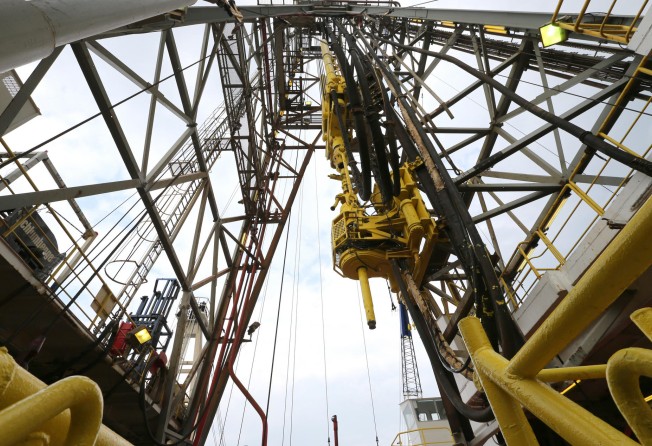
Chinese-led international mission to explore South China Sea for oil
Chinese-led international mission will search for oil and gas in disputed areas of South China Sea

The first scientific ocean drilling expedition led and sponsored by China sails from Hong Kong tomorrow into the South China Sea - the subject of territorial disputes between Beijing and neighbouring countries.

Scientists said the samples would reveal the tectonic evolution of the South China Sea, and pave the way to map oil and natural gas fields.
"Oil and gas fields lie close to the coast, but the key is to open the treasure box buried beneath the basin," said Wang Pinxian, a marine geologist and member of the Chinese Academy of Sciences.
And Lin Jian, one of the chief scientists involved, said: "The basalt retrieved from the basin is like a book that records the formation of the South China Sea."
Proposed by Chinese scientists in 2008, the trip marks the first sailing of the 2013-2023 International Ocean Discovery Programme (IODP), an international scientific research effort established by the United States in the 1960s.
Dozens of proposals for the programme were submitted by the 26 IODP member countries. The proposal to drill in the South China Sea did not win the most votes, but the generosity of the Chinese government - which is paying US$6 million, or 70 per cent, of the expedition's cost - was a deciding factor.
China also submitted a proposal last year to examine the northern reaches of the South China Sea, the area so far identified with the richest oil and gas resources, said Li Chunfeng, another scientist on the expedition.
The 31 scientists on the ship come from 10 countries and regions: 13 are from mainland China, nine from the US and one from Taiwan.
The US National Science Foundation, which once contributed 70 per cent of the Joides Resolution's expenses, cut its annual ocean drilling budget to US$50 million last year, said Dr David Divins, director of the ocean drilling programme of the IODP.
A year after joining the IODP in 1998, China took part in an expedition to the South China Sea, which charted climatic and environmental changes and played a part in locating oilfields in its northern part. The new expedition will drill as deep as 1,930 metres into the seabed, the fifth deepest such exploration in history. In 1999, drills went only several hundred metres deep.
Learning the movements of the tectonic plates was the first step to locating oil deposits, Wang said.
The ship will pass through and drill in regions claimed variously by China, the Philippines and Vietnam. Operated by the National Science Foundation, the ship has received permission from Manila and Beijing but is awaiting a response from Hanoi to drill at a site in the southwest of the South China Sea. The expedition may have to opt for an alternative site, said Divins.
The Philippines has sent an observer scientist to the expedition, whose findings and database will be shared worldwide, including with scientists from non-IODP member countries.
The Philippines is one of several countries that claim parts of the South China Sea.
Xinhua yesterday reported that three People's Liberation Army naval vessels patrolled the James Shoal, 80 kilometres off the coast of Malaysia's Sarawak state and 1,800 kilometres from the Chinese mainland. The shoal is also claimed by Malaysia and Taiwan. Troops aboard the ships - an amphibious landing craft and two destroyers - held "an oath-taking ceremony to safeguard the area's sovereignty".